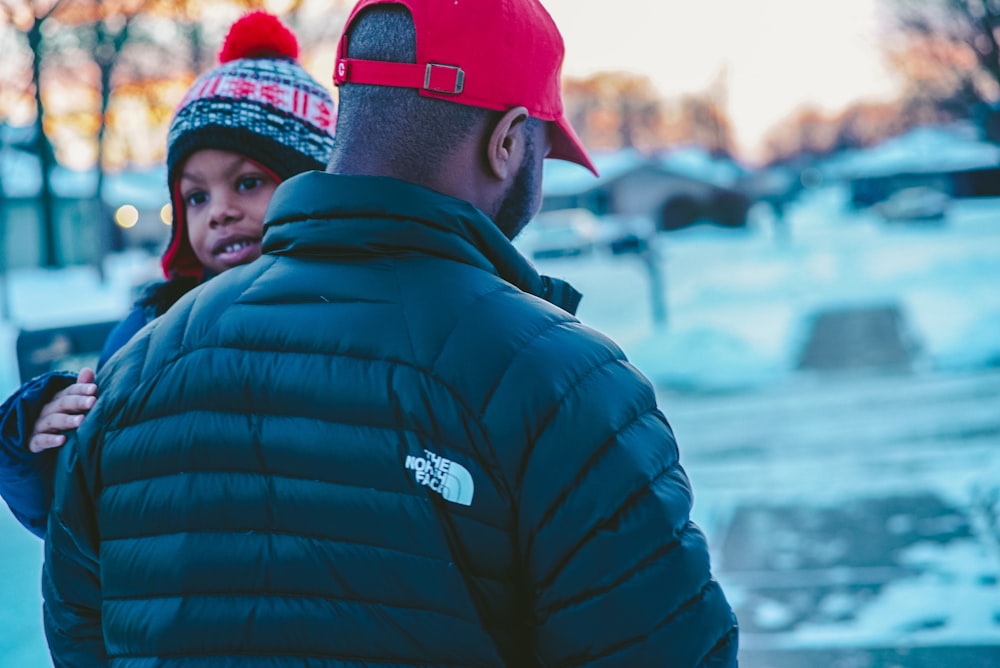I was well past 40 when I celebrated my first Father’s Day. Not experienced, but actually celebrated that annual, sacred day of all things dad. It was seven months after the birth of my twin sons. Until then, fatherhood had mostly offered me little to feel good about.
Like many Black folks in America, I’m a fatherless son of a single mother—a status that can feel oddly isolating and ubiquitous at the same time. Raised as I was, mostly around White people, I knew plenty of kids with divorced parents. But truly fatherless folks were few and far between. And so I bore the double stain of both race and non-nuclear family structure for most of my kid years.
No matter the circumstances of how we are raised, Black men have a uniquely complicated relationship with fatherhood. On one hand, society expects little of us beyond absenteeism: Black men as “baby daddies” and all the cultural and political dreck that comes along with it. At the opposite extreme, many of us expect nothing less than perfection of ourselves—that mythical “good black man” rendered in father form and tasked, Obama-like, with saving the world. For these men, there’s the relentless awareness that they’re not just fathering for their own children’s sake, but for every Black family stained by the stigma of simply being Black.
The world doesn’t expect fatherhood to come naturally to Black men. Every moment we prove them wrong is an act of resistance and revolution.
Fetishized, pathologized, and endlessly analyzed, Black fathers are centered as both the causes of and solutions for every imaginable African-American ill. And there’s truth on both sides of this equation. Without doubt, some—not all—Black men are failing their families. Indeed, according to the 2020 Census, Black children are the only American demographic to most likely “not be living with two married parents,” with a majority living with their mothers only. And without the bonds of marriage, explained Stanford Law Professor Ralph Richard Brooks in his seminal 2011 book Is Marriage for White People, Black families miss out on the types of wealth building and social mobility Black people have never needed more.
At the same time, data also points out that Black men—even those unmarried to their children’s mothers—can have a singularly outsized impact on the fates of Black children. This is especially true for Black boys, who without adequate male role models are almost destined to continue the cycle of fatherlessness. In an exhaustive study by Stanford University, Harvard University, and the U.S. Census Bureau about the impact of race on Black boys’ lives, there was a startling correlation between Black boys succeeding in life and the presence of Black fathers in the community. Note, these men didn’t necessarily need to be their own fathers, the 2018 study noted, just Black fathers, period. In other words, Black boys need to see Black men steeped in the mundaneness of everyday Black fatherhood. Black men like myself.
Having been raised by a White mother, I’ve not always felt comfortable holding the mantle for Black fathering. Especially with children even lighter than myself. But I’ve never felt Blacker than I do as a dad; both because parenthood necessitates so much additional interaction with White people (doctors, teachers, all those other parents) and because I do feel an obligation to lead by example—even if I lacked one myself.
Blackness makes me cautious and protective, especially with sons. As well as calm and accommodating—often far more than I should. Take an incident a few weeks back at a playground on Manhattan’s Upper East Side. As my boys and I were about to head home, I was engaged by an Asian mom upset because my son had apparently broken her daughter’s bucket. With two kids to watch and this woman to deescalate, I knew there was little room for error. In other words—I just wanted to get the hell out of there.
And so I kept her cool and indulged her hot-headedness—making sure she felt affirmed and listened to so she could find the space to actually express what she wanted. In the end, it amounted to little more than $10 and 10 whiny minutes of facetime. But it was enough for a nearby (White) mom to kindly commend me on my “patience and charm” with that woman. “If it had been me,” she’d went on to say, “I’d have told her to go fuck herself.” Of course I would have, too—if only the world would allow it.
As I ease into my sixth Father’s Day, I now understand both the weight—and power—that comes with Black fatherhood. I probably do expect more of myself than many other fathers I encounter. But who knows if that’s because I’m Black or gay or a single parent half of the time—or some mash-up of all three. What I do know is that the world doesn’t expect fatherhood to come naturally to Black men. Every moment we prove them wrong is an act of resistance and revolution. Black men don’t owe society superhuman fathering—but we do owe it to our families, to our children, and to ourselves.
